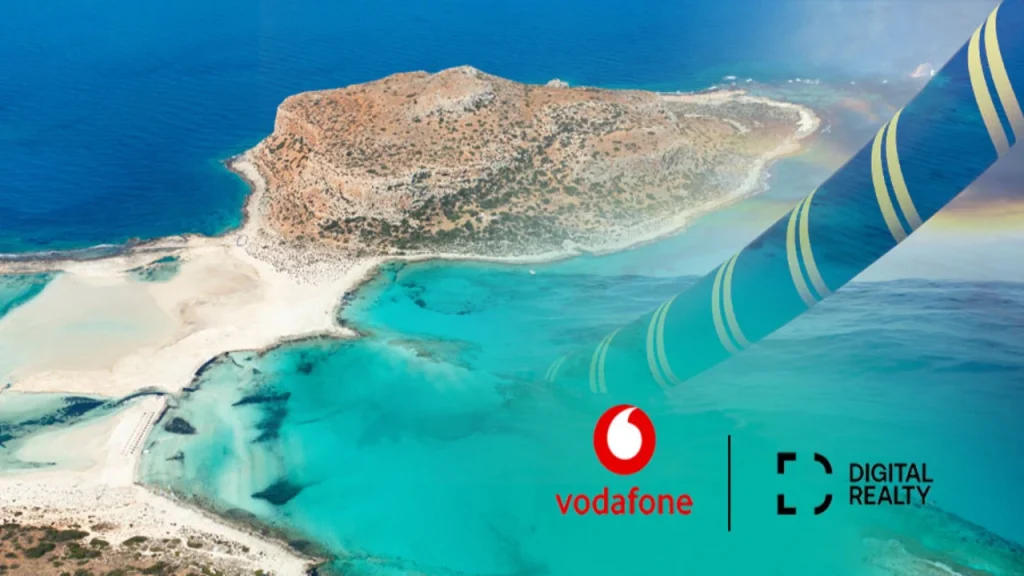- Vodafone and Digital Realty open a new subsea cable hub on the Greek island of Crete.
- The facility aims to improve Europe-Asia-Africa connectivity through neutral, carrier-dense infrastructure.
What happened: Crete hub links subsea cables across Europe, Africa and Asia
Vodafone and data centre provider Digital Realty have launched a new subsea cable interconnection hub on the Greek island of Crete. The facility is located at Digital Realty’s “Heraklion Campus” and is designed to serve as a neutral, open-access point for subsea cables traversing the Mediterranean.
The hub integrates Vodafone’s subsea infrastructure and landing assets with Digital Realty’s colocation and interconnection capabilities. In a joint statement, the companies said the new facility aims to become a “gateway between continents,” facilitating low-latency, high-capacity traffic. Crete’s geographic location was key to the decision, as it sits strategically between major cable routes linking Africa, Asia, and Europe.
Also Read: Vodafone Idea adds 5G services in 23 more Indian cities
Also Read: Vodafone and AST SpaceMobile launch SatCo for D2D broadband
Why this is important
The Crete hub’s strategic value lies in addressing the growing demand for bandwidth across intercontinental routes, especially as data consumption continues to rise. With geopolitical tensions affecting terrestrial links and other landing stations facing congestion, alternative routes like Crete are gaining importance. This development comes as part of a broader trend to diversify and decentralise subsea cable infrastructure.
Digital Realty’s expansion in Greece follows its acquisition of Lamda Hellix in 2020, positioning it as a major player in southern Europe’s digital infrastructure. Vodafone’s long-term investment in subsea cables, including projects such as 2Africa, further aligns with this growth. The Crete hub also mirrors efforts by other carriers, such as Sparkle’s investments in Sicily and Airtel’s African cable expansion.
This move strengthens Vodafone’s influence in intercontinental transport and gives Digital Realty a strategic foothold in subsea connectivity. Given the industry’s shift toward edge computing and latency-sensitive applications, having decentralised hubs like this will be essential. The stance here is positive: this development promotes resilience, competition, and innovation across Mediterranean and global routes.

